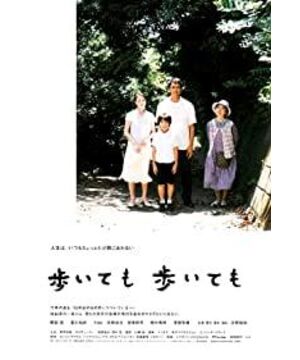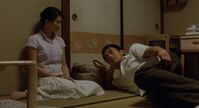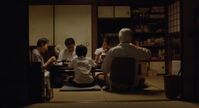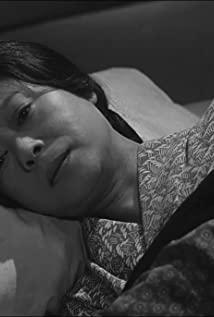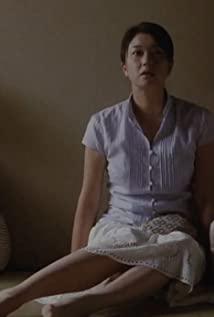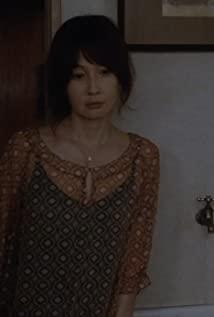This is probably why I have liked this film since the beginning of the film. The actions in the kitchen, mashing, cutting melons...comparable to the intentions of the photos in the magazine. The green of the tree is full of changes, the gold of the sun is like swaying in a wine glass, and the color is clean and bright, which is close to the popular small freshness, but it is far too small and fresh and generous.
The delicate and graceful part of Japanese culture that permeates life, such as the orchid fan that the old man shook in his hand, the towel like ink painting hanging outdoors, the elegance of the bamboo curtain of the paper house, the figure sitting alone in front of the courtyard, at night The flower plants on the table are like oil paintings... They are all carefully framed and filmed!
Photography is still only part of the film's brilliance, and it is also a part of paying tribute to Ozu, but the more core is still the plot. In the conversation that progressed slowly, the seemingly plain visits finally revealed the various secret pains of the family for decades. The death of the eldest son, the rebellion of the second son, the father’s affair many years ago, and the widow’s wife who is not satisfied with the old man...During eating eel rice, watching photos, and talking, these troubles and pains are finally exposed, just like all The same as your family.
Schilling is really the most brilliant actor in it. What a silly and happy mother-in-law Grandma looks like, but behind this kind silly, there are the hurt of life to her and the anger that comes from it, as well as the uniqueness of being an old man in the East. Kind of tradition and shrewdness. She couldn't forget the death of her eldest son, nor her husband's derailment, but she didn't put it all on her lips, because life is always going to go on. Her old mind can't accept many wives. She intimately picks vegetables for her children and finds kimonos for her daughter-in-law, but she shook their hands at a distance. But this is an old man, living with such a severe scar in her life, she can only dissolve the time of making sushi and chatting, how could she demand so much from her.
But there is still a human touch in the film. For example, a child who conceals his dream of becoming a piano tuner like his father, makes a wish in the yard, still saying that he is like a father, or like Aliang. But this kind of human touch is not overly sensational. Like the noble and generous grandma, it has become the most realistic presentation in the movie.
Just as many failed to watch the baseball game with his father in the end, and failed to take his mother to the car, the story ended. It's life. But many lives are in a touch of sorrow, in the various decent traditions and unspoken sayings of the grandmother's religion, and the leaves are scattered.
View more about Still Walking reviews


